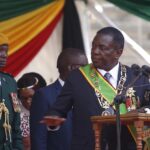South Africa’s ruling African National Congress (ANC) and the main opposition party, Democratic Alliance (DA), have reached an agreement to form a government of national unity (GNU).
This unprecedented political pact, which also includes the Patriotic Alliance (PA) and Inkatha Freedom Party (IFP), comes on the heels of the coun
try’s 2024 general elections, where the ANC lost its long-held majority in the National Assembly for the first time.
According to reports from the South African Broadcasting Corporation (SABC) and the Sunday Times, the deal was struck during the first sitting of the National Assembly on Friday. Under the terms of the agreement, the DA will secure the coveted position of deputy speaker, while the ANC’s Mdumiseni Ntuli is poised to become the incoming chief whip.
Crucially, the agreement also paves the way for the re-election of Cyril Ramaphosa as the President of South Africa, with the backing of the DA. This marked shift in political alliances underscores the changing dynamics within the country’s political landscape.
The Sunday Times report quoted an anonymous senior DA member of parliament stating, “It’s done. We have a deal.” The details suggest that the ANC has agreed to support the election of a DA deputy speaker, in exchange for the opposition party’s endorsement of Ramaphosa’s presidency.
This unexpected unity government comes at a critical juncture for South Africa, as the country grapples with a range of socio-economic challenges.
The formation of this GNU is seen as a significant departure from the country’s traditionally adversarial political environment, with the potential to foster greater cooperation and cross-party collaboration in addressing the nation’s pressing issues.
As the first sitting of the National Assembly unfolds, the eyes of South Africans and the international community will be closely watching to see how this historic agreement unfolds and shapes the future of the country’s governance.











